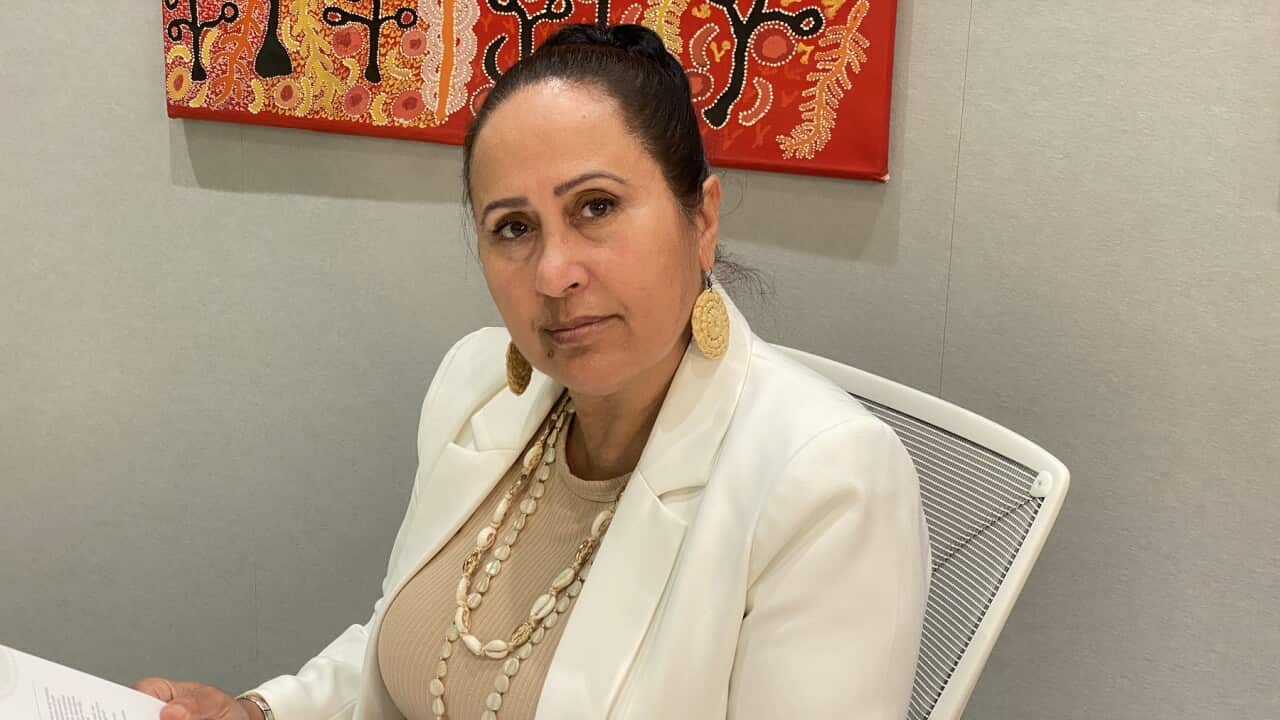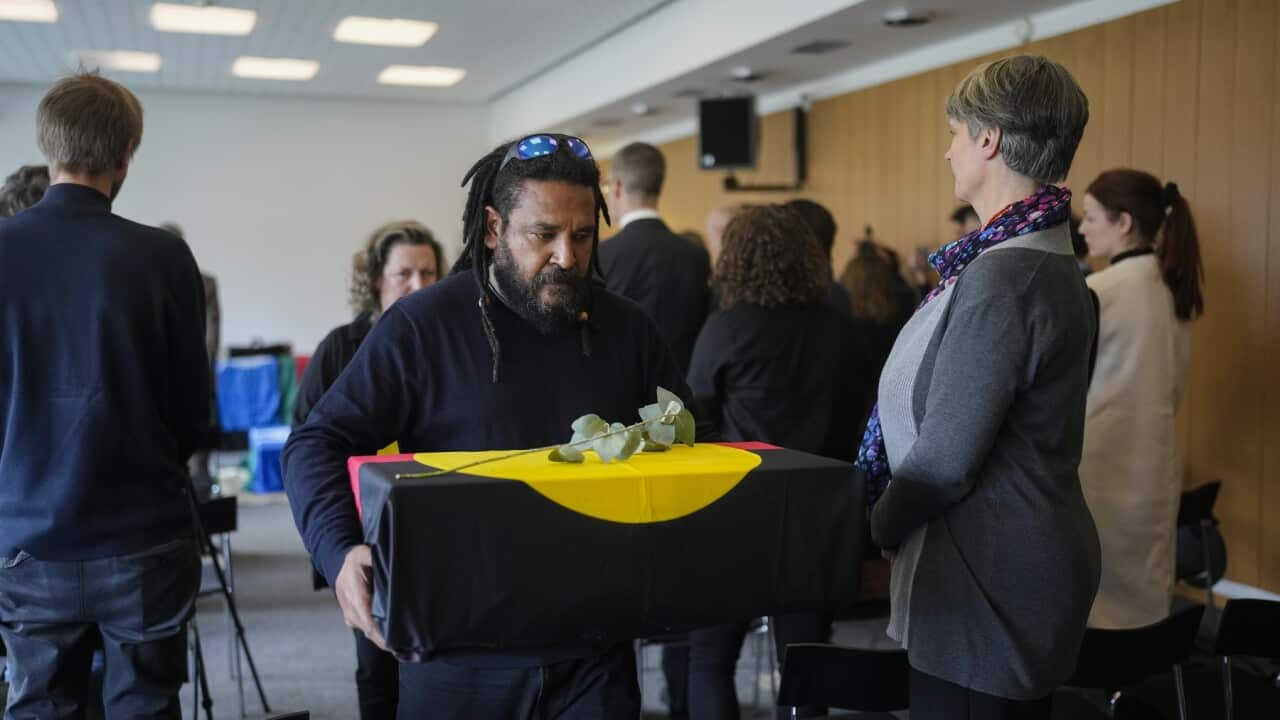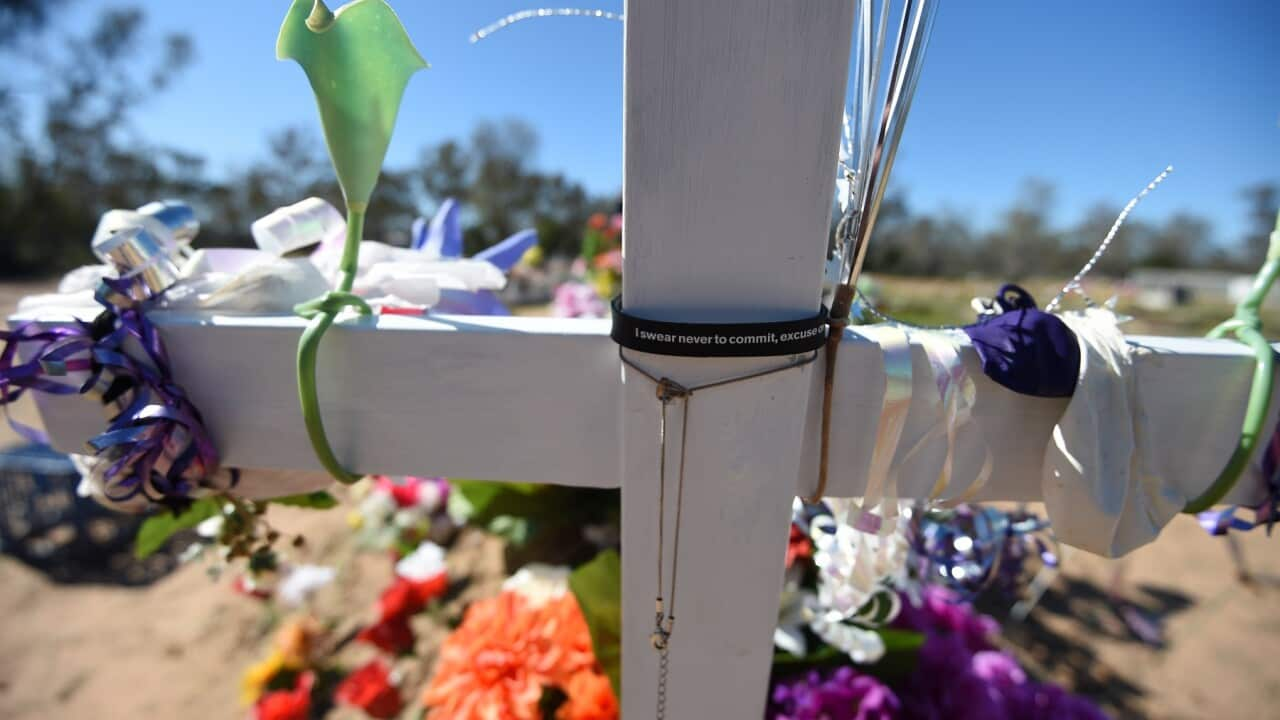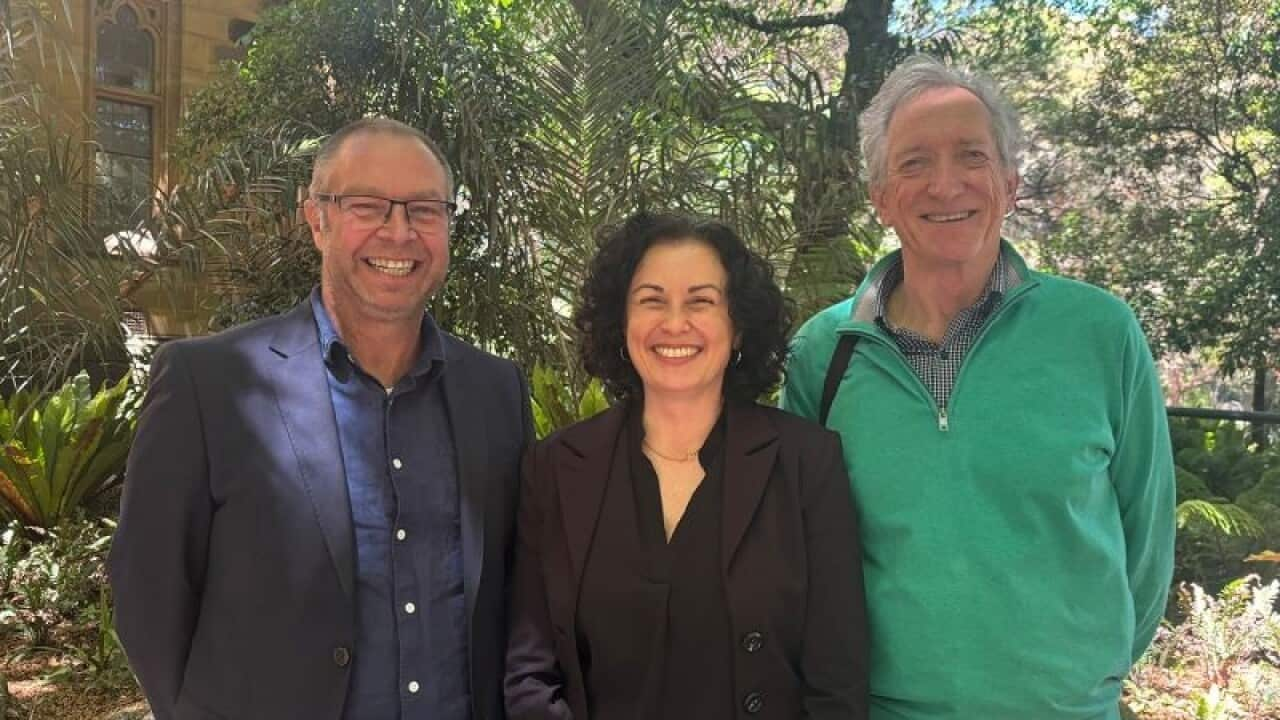TRANSCRIPT
In an outback town on South Australia’s far west coast, a Wirangu woman picks up her three-year old granddaughter for a hug.
The little girl was only two when she was removed from her grandmother's care and placed in a youth home.
She was returned to her grandmother, along with her three brothers, just before her third birthday.
The grandmother - who we’ll call Susan, because SBS cannot reveal the family’s identity for legal reasons - is now the recognised carer for her four grandchildren.
In July last year, authorities from the Department for Child Protection - or DCP - removed the siblings from their parents over an issue involving illicit drug use.
Grandmother Susan had stepped up.
“I've been through the system myself and it's hard. But the main thing was they are my blood. I will step up, I'll look after them, they're my pride and joy, they're my world.”
At the DCP’s request, Susan found a new house to live in with the children at an Aboriginal community.
“I was blessed with a lovely big home. DCP never even made an effort to come out to see my home. They never helped me with anything.”
Susan started an application process to become a kinship carer.
But then the DCP said Susan was what they called a "prohibited person" - and took the children away.
The moment she walked out of the local DCP office to tell the children in a visitors area is etched in Susan’s memory.
“And we just shook and cried. I knew that day that I lost my grandchildren that I had a fight on my hands but I had to be strong for them. I had the little one in the corner and she just stood there and froze, and I said come to Nanna (speaks in language 'come here') I had the three boys on my lap crying.”
Susan explains how she entrusted the care of the three younger siblings to their 11 year-old big brother.
“He said ‘I can’t Nanna’, and I said, 'yes you can, I know you can'. I saw an eleven-year-old child turn into a man that day. He said, ‘Nanna I promise you I will.’ I said, 'if you have to, if you're in the same house together, always sleep with one eye open, one eye closed.' They put the four kids together in one house, and they all slept in one room on a double bed. And he did that, he slept with one eye open, one eye closed to protect his siblings.”
The four siblings - then aged between two and 11 - were sent to a youth home in a bigger town, hundreds of kilometres from their community.
They remained there for two-and-a-half months.
The DCP would later reverse its decision, returning the children to Susan with a glowing report of the home and loving care she provided.
Susan is still unsure why she was deemed a 'prohibited person'.
A freedom of information request sent to the DCP via her legal representative failed to clarify the decision.
But she says she'd had some interactions with police while her daughter and grandchildren were living with her in early 2023.
South Australian law requires family carers to pass Working with Children and Prohibited Persons checks, conducted by the Department's child protection screening unit.
“As a grandmother, who is probably the most suitable person, who loves her grandchildren, was alienated from her grandchildren and from the processes and was considered - for all sorts of wrong reasons - an unsafe person.”
That’s April Lawrie, a Kokatha woman who is the Commissioner for Aboriginal Children and Young People in South Australia.
During the Stolen Generations it's estimated between one and three in every ten Indigenous children were removed from their families.
Advocates in South Australia say the number of children being removed today is approaching those historic levels.
April Lawrie has been calling for urgent action to address what she says are "unnecessary" removals, based on what she calls "institutionally racist" decision-making in South Australia.
“If we don't curtail the rates of Aboriginal child removals, we can expect in seven years — by 2031 —, that 14 out of every 100 Aboriginal children here in South Australia will be in state care. We need to work really hard to change that trajectory and to ensure that we do everything possible with the implementation of the Aboriginal Child Placement Principle in its fullest form to ensure that our children grow up with family community and culture, because right now, if we don't do anything we will see another generation of Aboriginal children being stolen.”
The Aboriginal Child Placement Principle is about making every attempt to place a child with his or her family, and if that is not possible, with their community or Aboriginal family-based carers.
It was developed by Aboriginal leaders in the 1970s to avoid future stolen generations.
It was gradually adopted into government policies, as Commissioner Lawrie explains.
“That's what the Aboriginal Child Placement Principle is all about, is to ensure that our children grow up connected with family, community culture safely. And unfortunately, the way in which the legislation holds the principal and the paramount of safety, it's almost like they're two separate conditions when in fact the principal or the Aboriginal and Torres Strait Islander Child Placement Principle is about safety within family, community and culture. When the system starts just focusing on one single issue and does not have this holistic view about what's in the best interest of the child or the children in this case, then we see things go very wrong.”
Six months ago, the Commissioner published the findings of a two-year public inquiry and a damning critique of the state government's implementation of the Aboriginal Child Placement Principle.
Government data shows nearly one in ten Aboriginal children are currently in state care.
Only 30 per cent of children who are removed are placed with kinship carers in South Australia, and just eight per cent are placed with other Indigenous families.
Among the 48 findings and 32 recommendations made, the Holding on to Our Future report found the Working with Children and Prohibited Persons checks were a key barrier to keeping families together.
It found family members were often blocked from progressing through kinship carer assessments for things that were irrelevant to their ability to provide safe and appropriate care.
Susan's story wasn't included in the report, but Commissioner Lawrie say it resonated with the experience of many Aboriginal families who lost their children.
“Things that have happened in their history which have no bearing on who they are today. And the system needs to understand and acknowledge that people change, that people's stories are different today from what they were in the past, and that the things that actually make you a good parent or a good and a good grandparent need to be understood the way in which we hold them true to us, as family.”
The state government is yet to respond to the report.
A spokesperson says it’s taking the appropriate time to carefully consider the recommendations.
The day Susan’s grandchildren were finally returned to her is also etched in her memory.
She and a cousin drove four hours to the town where the children were living in the youth home.
Department staff met them and released the children one by one from a parked car.
There is a video recording of the moment.
“It's Nanna here, waiting for you!"
The eldest child runs to her.
But the youngest is hesitant.
"They handed the kids over, and what broke my heart (was) the little three year old just looked at me and cried like she didn't know who I was, but there was a lot of joy, you know, a lot of joy. i'd got them back home.”
After losing the children Susan had sought legal advice, and reached out to the Commissioner Lawrie through a family contact.
The children were returned following a letter of advocacy from the Commissioner and after a permanent manager was returned to the local DCP office, following a series of Fly-in-fly-out placements.
The DCP then successfully applied to the youth court to remove a guardianship order.
Susan is relieved to have the children living with her, but she believes the whole ordeal could have been avoided.
SBS asked the DCP about Susan’s case and a spokesperson said it doesn’t comment on individual matters.
Here's what Susan has to say:
“It could have been avoided, I'd say, if the original boss was in the office at the time. But they had the fly-in-fly-outs in the office at the time, and they came in and made decisions. They didn't know my background, they just had reports more or less, by conversation instead of what I'd been through.”













